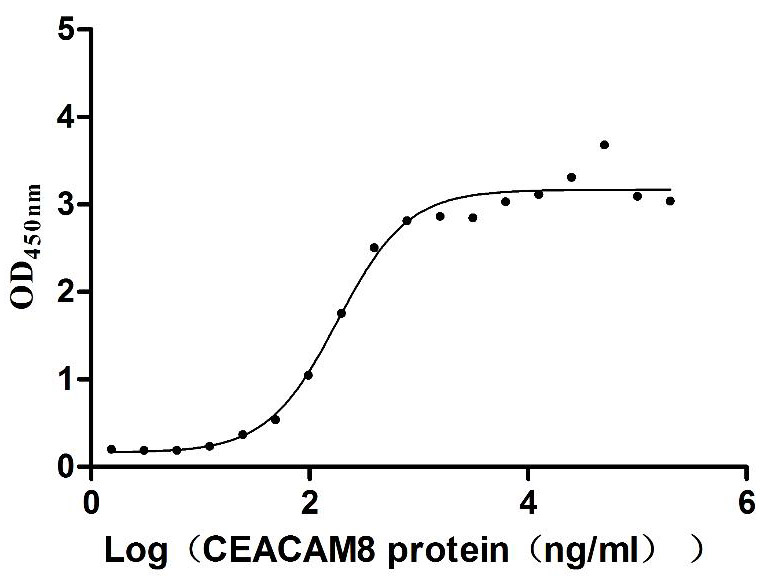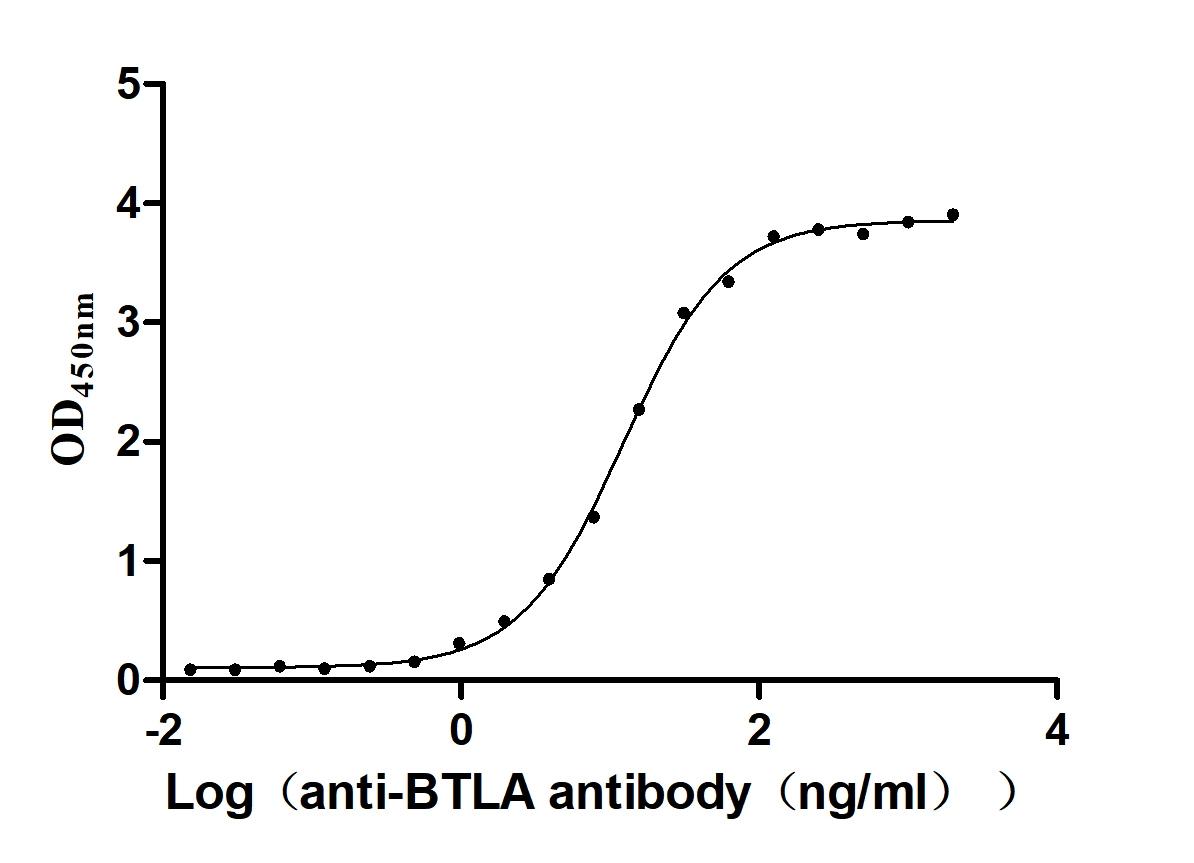Recombinant Human Nuclear factor 1 A-type (NFIA)
-
货号:CSB-YP619635HU
-
规格:
-
来源:Yeast
-
其他:
-
货号:CSB-EP619635HU
-
规格:
-
来源:E.coli
-
其他:
-
货号:CSB-EP619635HU-B
-
规格:
-
来源:E.coli
-
共轭:Avi-tag Biotinylated
E. coli biotin ligase (BirA) is highly specific in covalently attaching biotin to the 15 amino acid AviTag peptide. This recombinant protein was biotinylated in vivo by AviTag-BirA technology, which method is BriA catalyzes amide linkage between the biotin and the specific lysine of the AviTag.
-
其他:
-
货号:CSB-BP619635HU
-
规格:
-
来源:Baculovirus
-
其他:
-
货号:CSB-MP619635HU
-
规格:
-
来源:Mammalian cell
-
其他:
产品详情
-
纯度:>85% (SDS-PAGE)
-
基因名:NFIA
-
Uniprot No.:
-
别名:1110047K16Rik; 9430022M17Rik; CCAAT Box Binding Transcription Factor; CCAAT-box-binding transcription factor; CTF; FLJ39164; NF I/A; NF-I/A; NF1-A; NFI A; NFI L; NFI-A; NFIA; NFIA_HUMAN; Nuclear factor 1 A type; Nuclear factor 1 A-type; Nuclear factor 1/A; Nuclear factor I/A; TGGCA binding protein; TGGCA-binding protein
-
种属:Homo sapiens (Human)
-
蛋白长度:full length protein
-
表达区域:1-509
-
氨基酸序列MYSPLCLTQD EFHPFIEALL PHVRAFAYTW FNLQARKRKY FKKHEKRMSK EEERAVKDEL LSEKPEVKQK WASRLLAKLR KDIRPEYRED FVLTVTGKKP PCCVLSNPDQ KGKMRRIDCL RQADKVWRLD LVMVILFKGI PLESTDGERL VKSPQCSNPG LCVQPHHIGV SVKELDLYLA YFVHAADSSQ SESPSQPSDA DIKDQPENGH LGFQDSFVTS GVFSVTELVR VSQTPIAAGT GPNFSLSDLE SSSYYSMSPG AMRRSLPSTS STSSTKRLKS VEDEMDSPGE EPFYTGQGRS PGSGSQSSGW HEVEPGMPSP TTLKKSEKSG FSSPSPSQTS SLGTAFTQHH RPVITGPRAS PHATPSTLHF PTSPIIQQPG PYFSHPAIRY HPQETLKEFV QLVCPDAGQQ AGQVGFLNPN GSSQGKVHNP FLPTPMLPPP PPPPMARPVP LPVPDTKPPT TSTEGGAASP TSPTYSTPST SPANRFVSVG PRDPSFVNIP QQTQSWYLG
-
蛋白标签:Tag type will be determined during the manufacturing process.
The tag type will be determined during production process. If you have specified tag type, please tell us and we will develop the specified tag preferentially. -
产品提供形式:Lyophilized powder
Note: We will preferentially ship the format that we have in stock, however, if you have any special requirement for the format, please remark your requirement when placing the order, we will prepare according to your demand. -
复溶:We recommend that this vial be briefly centrifuged prior to opening to bring the contents to the bottom. Please reconstitute protein in deionized sterile water to a concentration of 0.1-1.0 mg/mL.We recommend to add 5-50% of glycerol (final concentration) and aliquot for long-term storage at -20℃/-80℃. Our default final concentration of glycerol is 50%. Customers could use it as reference.
-
储存条件:Store at -20°C/-80°C upon receipt, aliquoting is necessary for mutiple use. Avoid repeated freeze-thaw cycles.
-
保质期:The shelf life is related to many factors, storage state, buffer ingredients, storage temperature and the stability of the protein itself.
Generally, the shelf life of liquid form is 6 months at -20°C/-80°C. The shelf life of lyophilized form is 12 months at -20°C/-80°C. -
货期:Delivery time may differ from different purchasing way or location, please kindly consult your local distributors for specific delivery time.Note: All of our proteins are default shipped with normal blue ice packs, if you request to ship with dry ice, please communicate with us in advance and extra fees will be charged.
-
注意事项:Repeated freezing and thawing is not recommended. Store working aliquots at 4°C for up to one week.
-
Datasheet :Please contact us to get it.
相关产品
靶点详情
-
功能:Recognizes and binds the palindromic sequence 5'-TTGGCNNNNNGCCAA-3' present in viral and cellular promoters and in the origin of replication of adenovirus type 2. These proteins are individually capable of activating transcription and replication.
-
基因功能参考文献:
- The consistent overlap in clinical presentation provides further evidence of the critical role of NFIA haploinsufficiency in the development of the 1p32-p31 microdeletion syndrome phenotype. PMID: 28941020
- Data define a previously unknown nuclear factor I-A-nuclear factor-kappaB feed-forward regulation that may contribute to glioblastoma cell survival. PMID: 27994064
- Studies indicate the role of nuclear factor one (NFIs) as epigenetic regulators in cancer. PMID: 28076901
- Altogether, these results demonstrated that miR-370 suppressed hepatitis B virus gene expression and replication through repressing NFIA expression, which stimulates hepatitis B virus replication via direct regulation on hepatitis B virus Enhancer I activities. PMID: 27664977
- We verified that NFIA binds to the IGFBP2 promoter and transcriptionally enhances IGFBP2 expression levels. We identified that NFIA-mediated IGFBP2 signaling pathways are involved in miR-302b-induced glioma cell death. PMID: 28323865
- miR-191 was upregulated in patients with middle- and late-stage NSCLC, and in NSCLC cell lines, under mild hypoxic conditions. miR-191 promoted the proliferation and migration of NSCLC under chronic hypoxic conditions, and this promotion may be associated with its targeting of NFIA. PMID: 28075452
- Dihydrocapsaicin can significantly decrease proinflammatory cytokines through enhancing NFIA and inhibiting NF-kappaB expression PMID: 27267730
- These results demonstrated that RP5833A20.1 inhibited tumor cell proliferation, induced apoptosis and inhibited cellcycle progression by suppressing the expression of NFIA in U251 cells. PMID: 27779670
- NFI-A is involved in the miR-21-induced expression of IL-10 in B cells in nasopharyngeal carcinoma; Il-10 is capable of suppressing CD8+ T-cell activities. PMID: 25544502
- microRNA-136 targeted and degraded NFIA, which induced the release of microRNA-223, promoting CD11b expression. Direct base pairing occurs between miR-136 and the 3' UTR of NFIA mRNA. PMID: 26329426
- this family also carried a microdeletion affecting solely the NFIA gene, this study substantiates the importance of this gene in craniofacial development. PMID: 25714559
- TGF-beta-mediated suppression of ANT2 through NF1/Smad4 complexes contributes to oxidative stress and DNA damage during induction of cellular senescence. PMID: 25220407
- a strong candidate gene for asthma and allergic rhinitis PMID: 24560411
- RP5-833A20.1/miR-382-5p/NFIA pathway was essential to the regulation of cholesterol homeostasis and inflammatory reactions. PMID: 25265644
- This report presents the first case of an intragenic deletion within the NFIA gene that is still consistent with classic clinical phenotypes present in previously reported cases of chromosome 1p31.3 related deletion. PMID: 24462883
- High nuclear factor IA expression is associated with glioblastomas. PMID: 24305710
- These studies represent the first characterization of miR-223/NFIA axis function in glioma PMID: 23946414
- These data suggest that genetic variants in the NF1A gene region may predispose to seasonal patterned of mania in bipolar disorder. PMID: 22925353
- NFIA expression in white matter lesions of human newborns with neonatal HIE, as well active MS lesions in adults, revealed that it is similarly expressed in oligodendrocyte progenitors and not oligodendrocytes. PMID: 22807310
- Role in the expression mechanism of hNaPi-IIb gene transcription. PMID: 15458926
- nuclear factor I has a role in the intrinsic control of cerebellar granule neuron gene expression PMID: 15466411
- Distribution of nuclear factor I binding sites correlate with Z-DNA forming regions in human chromosome 22. PMID: 15598822
- Data show that human granulocytic differentiation is controlled by a regulatory circuitry involving miR-223 and two transcriptional factors, NFI-A and C/EBPalpha. PMID: 16325577
- The NF1-A transcription factor plays an important role in the transcriptional activation of the TR2 orphan receptor gene expression via a promoter activating cis-element. PMID: 17010934
- The mouse Nfia mutant phenotype and the common features among five human cases indicate that NFIA haploinsufficiency contributes to a novel human central nervous system malformation syndrome that can also include ureteral and renal defects. PMID: 17530927
- NFI family of transcription factors plays a key role in the regulation of both the B-FABP and GFAP genes in malignant glioma cells. PMID: 19540848
- in early hematopoiesis, the NFI-A expression level acts as a novel factor channeling HPCs into either the E or G lineage PMID: 19542302
- Disruption of the Nfia gene in the mouse causes perinatal lethality, agenesis of the corpus callosum and hydrocephalus. PMID: 10518556
显示更多
收起更多
-
相关疾病:Brain malformations with or without urinary tract defects (BRMUTD)
-
亚细胞定位:Nucleus.
-
蛋白家族:CTF/NF-I family
-
数据库链接:
HGNC: 7784
OMIM: 600727
KEGG: hsa:4774
STRING: 9606.ENSP00000360231
UniGene: Hs.740757
Most popular with customers
-
Recombinant Human Tumor necrosis factor receptor superfamily member 8 (TNFRSF8), partial (Active)
Express system: Mammalian cell
Species: Homo sapiens (Human)
-
Recombinant Human C-X-C chemokine receptor type 4 (CXCR4)-VLPs (Active)
Express system: Mammalian cell
Species: Homo sapiens (Human)
-
Recombinant Human Epithelial discoidin domain-containing receptor 1 (DDR1), partial (Active)
Express system: Mammalian cell
Species: Homo sapiens (Human)
-
Recombinant Human IL12B&IL12A Heterodimer Protein (Active)
Express system: Mammalian cell
Species: Homo sapiens (Human)
-
Recombinant Mouse Complement component C1q receptor (Cd93), partial (Active)
Express system: Mammalian cell
Species: Mus musculus (Mouse)
-
Recombinant Human Dickkopf-related protein 1 (DKK1) (Active)
Express system: Mammalian cell
Species: Homo sapiens (Human)
-
Recombinant Human Carcinoembryonic antigen-related cell adhesion molecule 6 (CEACAM6) (Active)
Express system: Mammalian cell
Species: Homo sapiens (Human)
-
Recombinant Human B- and T-lymphocyte attenuator(BTLA), partial (Active)
Express system: Mammalian cell
Species: Homo sapiens (Human)


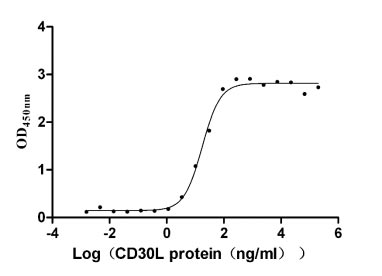
-AC1.jpg)

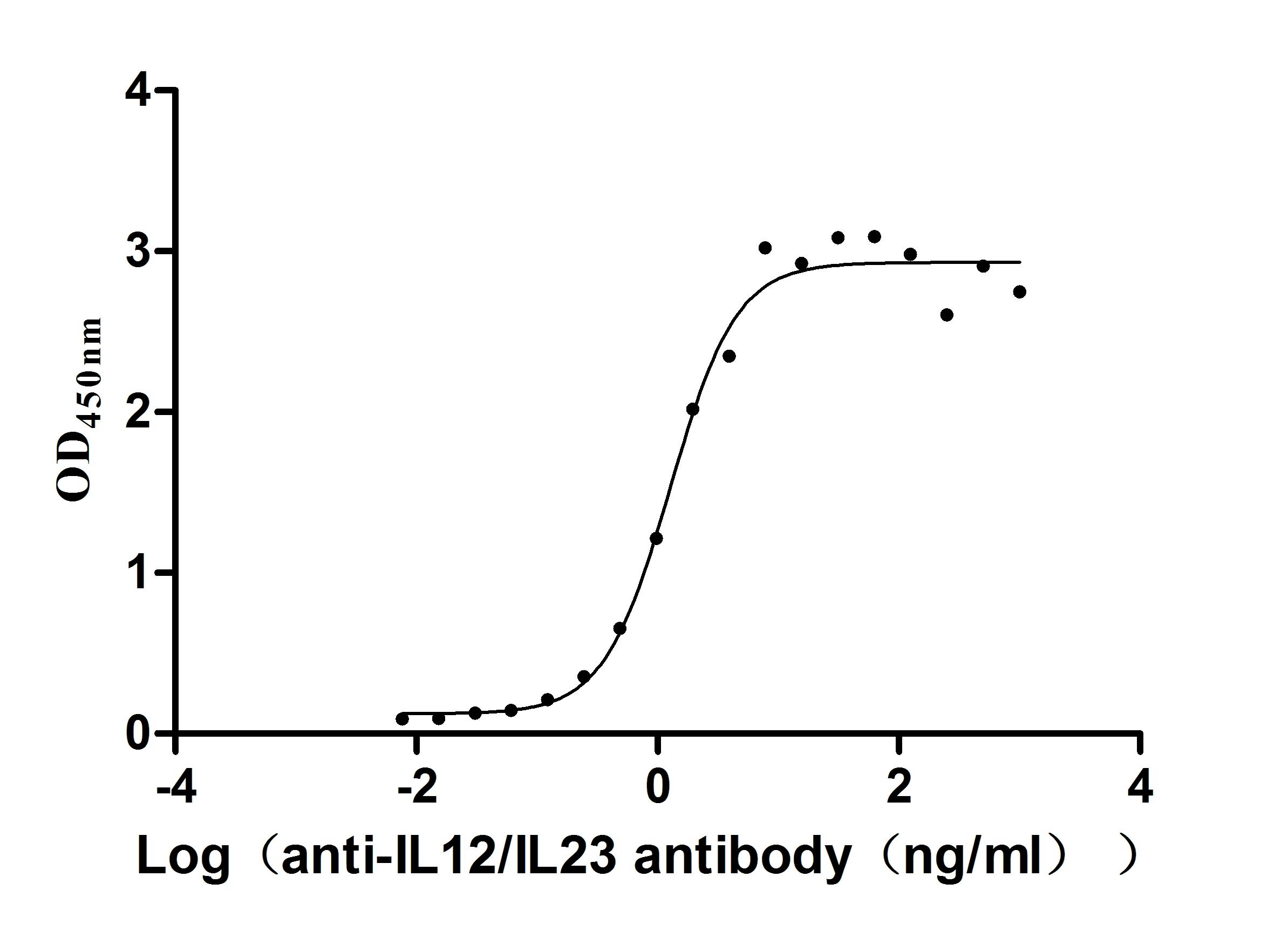
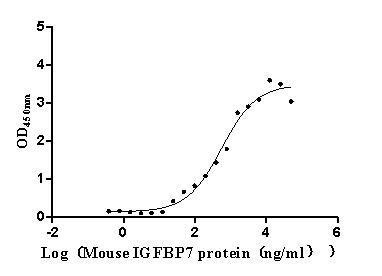
-AC1.jpg)
